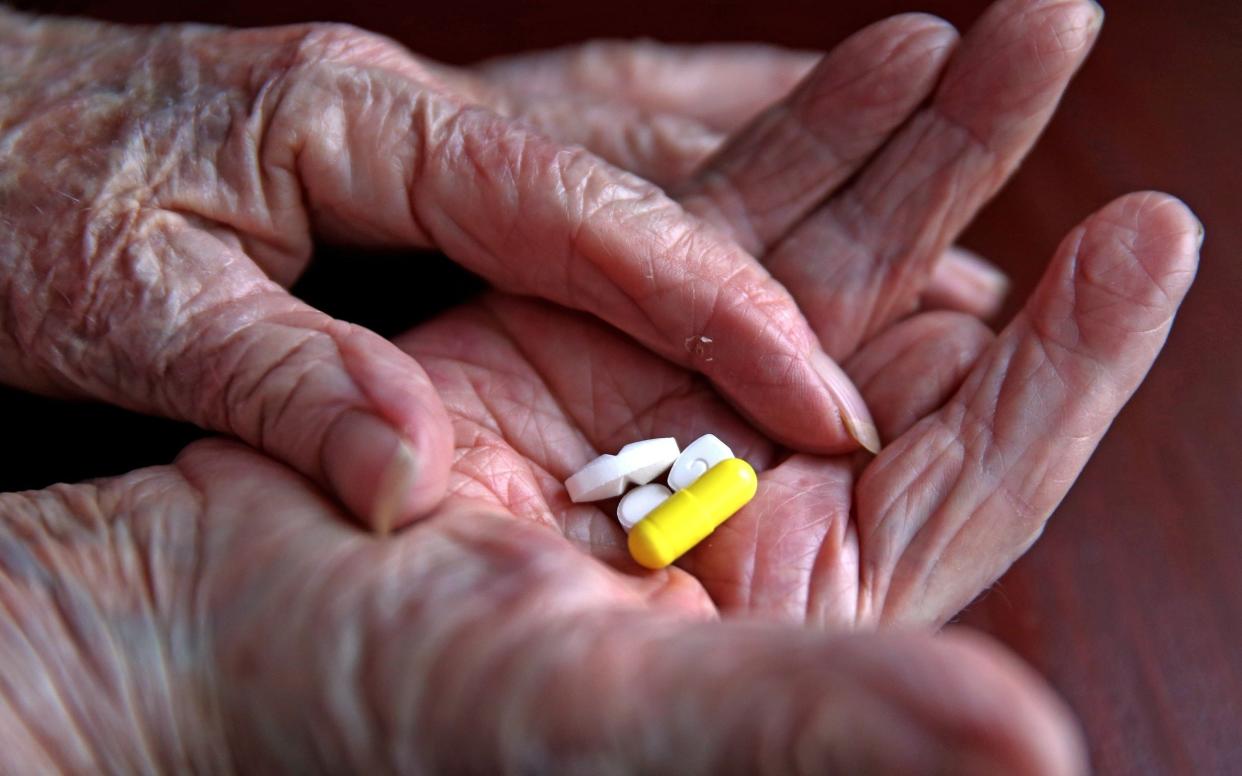Statins cause far fewer side-effects than people believe

Statins cause far fewer side-effects than people believe, the world's largest study has found.
The cholesterol-busting drugs are taken by about eight million people in the UK to cut the chance of heart attack and stroke.
But up to 80 per cent of those who think they have side-effects are not actually suffering from them, a study suggests.
Statins are among the most commonly prescribed drugs in Britain, offered to millions of middle-aged and older people, to protect against heart attacks and strokes.
But up to half of those prescribed the drugs stop taking them, cut the dose or take them irregularly because they associate them with side-effects such as muscle pain, digestive problems or difficulties sleeping.
In fact, less than one in 10 people will suffer any such symptoms, the findings from more than four million adults suggests.
It follows studies which have found the pills - costing pennies per day- can cut the risk of heart attacks and strokes by one quarter. One in every 50 people taking the drugs for five years will avoid such an event, research has found.
The drugs have been the subject of much debate, amid concern that they could cause debilitating side-effects.
Everyday aches and pains
But in recent years, research has increasingly suggested a “nocebo” effect - where patients taking the medication expect to feel worse afterwards and link everyday aches and pains to the drugs.
The study, published in the European Heart Journal, found that reported side-effects from statins are “overestimated and over-diagnosed”.
Researchers said the “true prevalence” of statin intolerance was around seven per cent when compared against diagnostic criteria drawn up by experts.
Lead researcher Professor Maciej Banach, of the Medical University of Lodz and the University of Zielona Gora, Poland, said: “I believe the size of our study, which is the largest in the world to investigate this question, means we are able to finally and effectively answer the question about the true prevalence of statin intolerance.
“These results were not a surprise to me but they were for many other experts. They show that in most cases statin intolerance is overestimated and over-diagnosed, and they mean that around 93 per cent of patients on statin therapy can be treated effectively, with very good tolerability and without any safety issues.
“Patients need to know that statins may prolong their life,” the researcher said, urging those with doubts to “keep on taking statins according to the prescribed dose" and discuss any side-effects with their doctor, rather than discontinuing the medication.”
Statins are a group of medicines that can help lower the level of low-density lipoprotein (LDL) cholesterol in the blood. LDL cholesterol is often referred to as "bad cholesterol" and is linked to cardiovascular disease, which can increase the chance of strokes and heart attacks, and death.
The research, which comes from an analysis of 176 studies, involving 4.1million patients, was led by Professor Banach, on behalf of the Lipid and Blood Pressure Meta-Analysis Collaboration and the International Lipid Expert Panel.
The study found that overall prevalence of side-effects was 9.1 per cent, dropping to between 5.9 per cent and 7 per cent when compared against diagnostic criteria.
Drugs caused harm
Researchers said that in many cases patients thought they were suffering ill effects from the drugs because they believed that the drugs caused harm.
“Our findings mean that we should evaluate patients’ symptoms very carefully, firstly to see whether symptoms are indeed caused by statins, and secondly, to evaluate whether it might be patients’ perceptions that statins are harmful – so-called nocebo or drucebo effect – which could be responsible for more than 50 per cent of all symptoms, rather than the drug itself,” Prof Banach said.
The research also found relatively higher risks of statin intolerance in particular groups.
While overall prevalence of side-effects fell between 6 and 10 per cent, within that women’s risk of side-effects was found to be 48 per cent higher than that of men. This means that about 11 per cent of women are likely to have statin intolerance, compared with about 7 per cent of men. Overall, relative risks were 31 per cent higher among patients aged 65 and over, 30 per cent higher among the obese, and 22 per cent higher among those who drank alcohol regularly.
Researchers said more should be done to examine combinations of risk factors to see how best to treat those at higher risk of side-effects.
Prof Sir Nilesh Samani, medical director at the British Heart Foundation, said: “Decades of evidence have proven that statins save lives. This latest analysis, showing that the risk of side-effects from statins are less than previously thought, should provide reassurance to those who are recommended this medicine to reduce their risk of a heart attack or stroke. Furthermore, other studies have shown that side-effects commonly attributed to statins are often not from the drug itself.
“Having said this, the decision to take a statin to reduce the risk of heart and circulatory disease should always be a joint one between a GP and patient after a discussion about the likely benefit,” he said.

